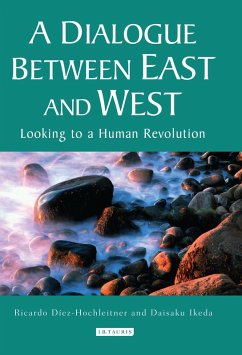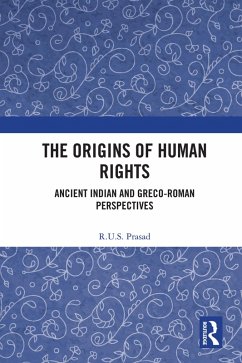
A Passage to Peace (eBook, ePUB)
Global Solutions from East and West

PAYBACK Punkte
7 °P sammeln!
'The seas do not separate us; rather, they bring us closer together.' Daisaku Ikeda's opening words to this consistently wide-ranging dialogue set the scene for what follows. For the theme of the book is that of the meeting of minds that follows interaction between peoples who might be geographically distant but who share much in common. Reflecting on his memories of standing on the shores of the Bosphorus, gazing at the adjacent coastlines of Europe and Asia, Ikeda explores the symbol of diversity represented by the cosmopolitan city of Istanbul. The city in which his interlocutor, distinguis...
'The seas do not separate us; rather, they bring us closer together.' Daisaku Ikeda's opening words to this consistently wide-ranging dialogue set the scene for what follows. For the theme of the book is that of the meeting of minds that follows interaction between peoples who might be geographically distant but who share much in common. Reflecting on his memories of standing on the shores of the Bosphorus, gazing at the adjacent coastlines of Europe and Asia, Ikeda explores the symbol of diversity represented by the cosmopolitan city of Istanbul. The city in which his interlocutor, distinguished social anthropologist Nur Yalman, grew up, remains an icon of ethnic plurality. This reflection leads the authors towards lively exploration of the customs and cultural mores shared by Japan and Turkey: two countries which historically stand at opposite ends of the great trading route that was the Silk Road, but which have old traditions of reciprocity and friendship.At the heart of this book lies these two men's mutual commitment to what they characterise as 'soft peace', or the attempt to resolve conflict through empathic engagement with those who hold alternative views. Touching on such vital themes as inter-religious dialogue, education, the environment and those common aspects of humanity which all persons share, "A Passage to Peace" represents an inspiring contribution to the modern discourse on ethics, peace studies and religion.













